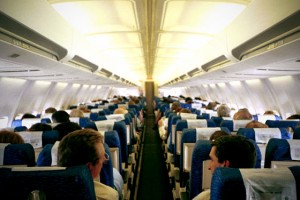 Being in a multicultural city like Washington DC, we see a lot of patients who travel frequently and are concerned about flying after common oral surgery procedures like teeth extraction or dental implants. Many believe they should not fly right after such procedures because of potential bleeding or having more pain!; this is of course not true. Here are several facts and tips on flying after teeth extraction or placement of dental implants:
Being in a multicultural city like Washington DC, we see a lot of patients who travel frequently and are concerned about flying after common oral surgery procedures like teeth extraction or dental implants. Many believe they should not fly right after such procedures because of potential bleeding or having more pain!; this is of course not true. Here are several facts and tips on flying after teeth extraction or placement of dental implants:
- While we recommend patients to rest for a day or two following oral surgery procedures, it is completely safe to travel or fly, even immediately after surgery.
- Airplanes have pressurized cabins therefore flying will not cause further bleeding or discomfort that some incorrectly believe is caused by changes in altitude.
- Flying will not prolong postoperative bleeding.
- If flying on the same day as surgery, try to get an aisle seat near the lavatory. You will need to get up every 30 to 45 minutes to change your gauze until bleeding stops.
- If flying on the day after your surgery, you are going to have to rinse every couple of hours with water or salt water. So again, probably a good idea to get an aisle seat near the lavatory. Take some salt with you and mix in a bottled water purchased in the terminal. One or two bottles should be enough to get you through the flight.
- If you take narcotic pain medication like Percocet or Vicodin, let the flight attendant know, so they don’t become concerned with your over-sleepiness. If you have to get up, ask for their assistance in the event you get lightheaded.
- Take plenty of gauze with you as bleeding may continue for several hours following surgery. Bleeding gradually diminishes over six to eight hours. Keep biting on the gauze with firm pressure until bleeding has completely subsided.
- For food, get some shakes or soups at the terminal. Leave the pretzels and chips for the next trip.
- Icing your face helps to minimize swelling after surgery. Take a couple of small-size Ziploc bags and ask the flight attendant to fill it with ice. Place the ice bag on the side of your face intermittently for 10-minute intervals.
- If you just had dental implants, don’t worry about setting off the alarms at the security check. Dental implants are made of titanium, a non-magnetic metal. Therefore, they do not set off metal detectors.
Just a few thoughts on making your air travel more comfortable following oral surgery. Bon Voyage!